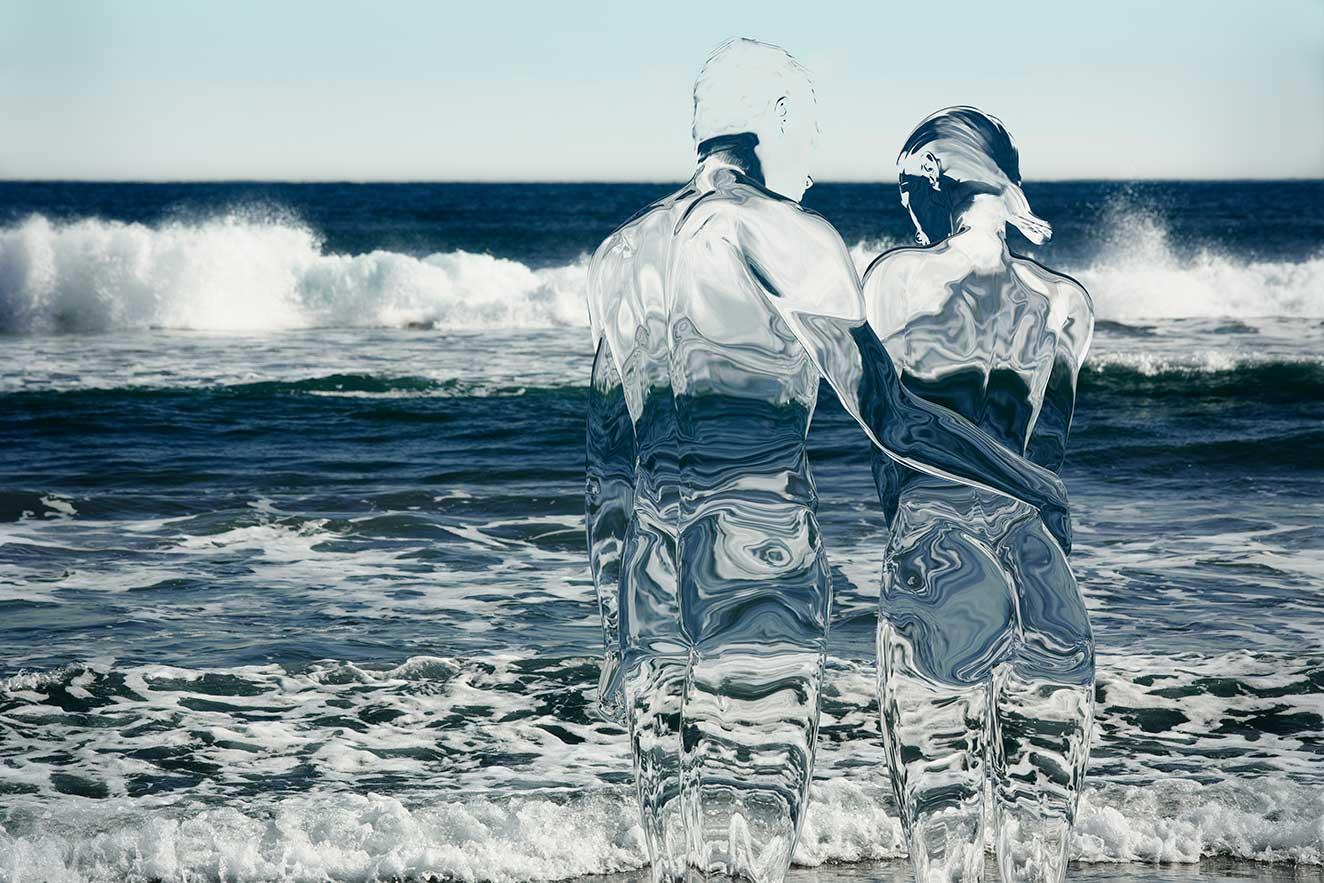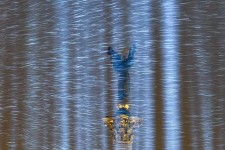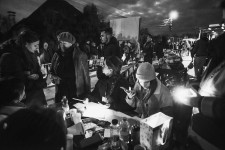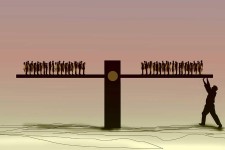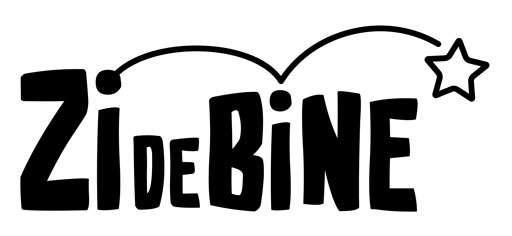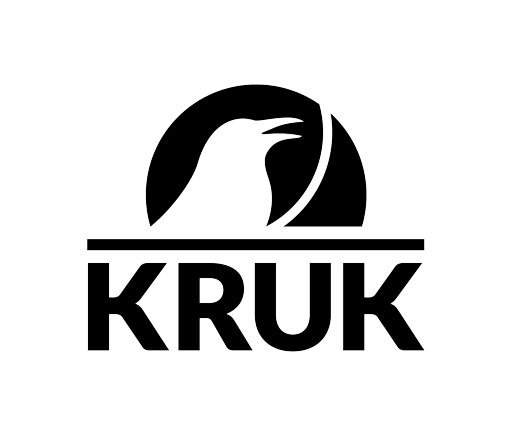F-16s are coming
Ukraine will finally receive the support of its Western allies in the form of F-16 fighter jets and pilot training, a significant improvement for the army's aging air force defending itself against Russian Federation attacks. As training of Ukrainian pilots on these jets will take several months, the F-16s are expected to become operational in the war between Ukraine and Russia sometime later this year. And it's not just the pilots alone to be trained, but also the personnel responsible for maintenance. What other special preparations are required to send F-16s to Ukraine, learn from an analysis published by Newsweek.
Closer to the bars
Putin's arrest is closer than ever, says former British Prime Minister Gordon Brown in an editorial published in The Guardian. And it's primarily related to the upcoming BRICS (Brazil, Russia, India, China and South Africa) summit in Johannesburg, in August. Over half a million people already called on the South African authorities to jail Putin if he flies to their country. Regardless of the outcome, August will be a turning point: either Putin attends the BRICS summit, risking arrest, or, by opting out, he exposes his fear of arrest. Either way, a line will be crossed, argues Gordon Brown, who points out that placing the Russian president behind bars will also require an overt commitment from the US, something that, although rhetoric, will prove difficult to achieve.
Ukraine has to join NATO
NATO should clearly articulate its official position on Ukraine's Euro-Atlantic trajectory after its victory against Russia. This is not a time for flip-flops, that will only send more signals to Russia indicating its aggressive behaviour against sovereign countries is working. Many politicians' and some academic circles' fears are unfounded, as NATO plans in the Eastern Europe were not the real reason behind Russia's invasion, although NATO expansion will prove to be a crucial step towards its long-term security strategy in Europe. Furthermore, once Ukraine becomes officially an EU candidate and proves its worth on the battlefield, with full integration of NATO assets, there should be no doubt the country stands ready to join the Alliance as soon as it re-establishes control over its borders. This theory is supported by Viktoriia Lapa, a researcher at the Centre for Defence Strategies in Ukraine, in a recent article published by kyivindependent.com.
Crossroads Europe
European elections are coming up and, considering the war in Ukraine, for the first time in decades, the main debate is no longer about how strong the cohesion between member states should be, but how the EU should respond to existing threats. These include the prospect of escalating Russian aggression, the rise of an increasingly powerful and autocratic China, the possible return of Donald Trump to the White House, and the reality of economic nationalism now being a matter of bipartisan consensus in the United States, placing Europe in trade wars and subsidy races with its closest ally, no matter who gets elected President in the US. And it all comes at a time when climate change, with its catastrophic effects being acutely felt in the EU, and rising energy prices place the European Community at a severe competitive disadvantage. But the big problem is that no one has clear solutions. You can read about it in an analysis published by politico.eu.
Weapons to Ukraine!
In a comprehensive interview for the German magazine Der Spiegel, Jens Stoltenberg, NATO Secretary-General, calls on Germany to increase its defence spending and supply fighter jets to Ukraine. He points out that long-term support, including supplying ammunition and spares, is just as important as providing equipment. Stoltenberg acknowledges the weaknesses of Russia's armed forces, but stresses the need for Ukraine to develop its own capabilities to force a political solution. He mentions EU and NATO efforts to strengthen defence and underlines the importance of all NATO member states reaching the defence spending target of 2% of GDP. Stoltenberg points out that all NATO countries agree Ukraine should join NATO and the importance of continued support for Ukraine in dealing with Russia.
Kiev looks up to the White House
Political battles in the US are being closely scrutinised by Ukrainians, concerned over the rhetoric of Republicans such as Donald Trump or Ron DeSantis, who is expected to publicly announce his presidential candidacy on Wednesday. Ukrainians' concerns look justified, given that Trump has repeatedly expressed admiration for Putin and DeSantis, currently governor of Florida, recently described the war in Ukraine as a "territorial dispute" of no vital interest for United States. Yet Ukrainian government officials are optimistic about continued US support because, they say, the conflict is directly related to US national security. An analysis published by the US television website cbsnews.com.
"This is no normal life"
The Kremlin's war rhetoric denying Ukrainian sovereignty and calling Ukrainians "Nazis" is placing unprecedented pressure on the large Ukrainian diaspora in Russia. "It was clear from the beginning that it would be impossible for me to speak out against the war, and remaining silent was not an option for me either," an Ukrainian entrepreneur and activist from Russia, who has since settled in Armenia, recently declared to The Moscow Times. That's the case for all those who oppose the war and face a difficult choice between leaving, interfering or risking a prison sentence for expressing anti-war views. Independent daily The Moscow Times interviewed several ethnic Ukrainian Russians and reports last week on the myriad problems and risks they face from the Russian authorities.
Let Me Let Go
In the wake of Russia's invasion of Ukraine, global corporations acted promptly, some announcing they would withdraw from Russia, others cutting back on imports and investment. However, leaving Russia proved not as simple as it first seemed. Russia imposed taxes on companies seeking to leave, and some international brands now try to circumvent these restrictions through third countries. Many companies remain in Russia invoking various arguments, such as responsibility to shareholders or employees or supplying essential products, shows an investigation by apnews.com. But there are also companies that decided to leave or significantly reduce their activity in Russia, regardless of sanctions.
Black Sea Exodus
Rakhel Viner's new life in Romania initially felt like a holiday. She escaped the hassle of cooking and housework in her opulent apartment in Odessa and enjoyed the resort town of Neptun by the Black Sea. One year later, though, the uncertainty caused by war and relocation began to weigh her down. Rakhel, along with a community of 1,000 Ukrainian Jews, fled to Romania, converting a hotel into a makeshift home with a synagogue and an accredited school. They carried along their culture and traditions, striving to recreate their world as they longed to return home. The Tikva organisation provided care for the orphaned children among them. The evacuation, led by former members of the Israeli Defence Forces, was a difficult journey through the Carpathian Mountains. The community faces the challenge of preserving its identity and adapting to a temporary life that may become permanent. Waiting for the war to end, their homesickness grows deeper. Read this emotional story published last week on newlinemag.com.
A new calendar
Ukrainian Orthodox Church's Synod approved the transition to the Julian calendar starting September 1st, meaning the Church will celebrate Christmas on December 25th instead of January 7th. Other holidays set on a fixed date will also shift. This change will not apply to Easter, as its date varies. More details in Kyiv Independent.








